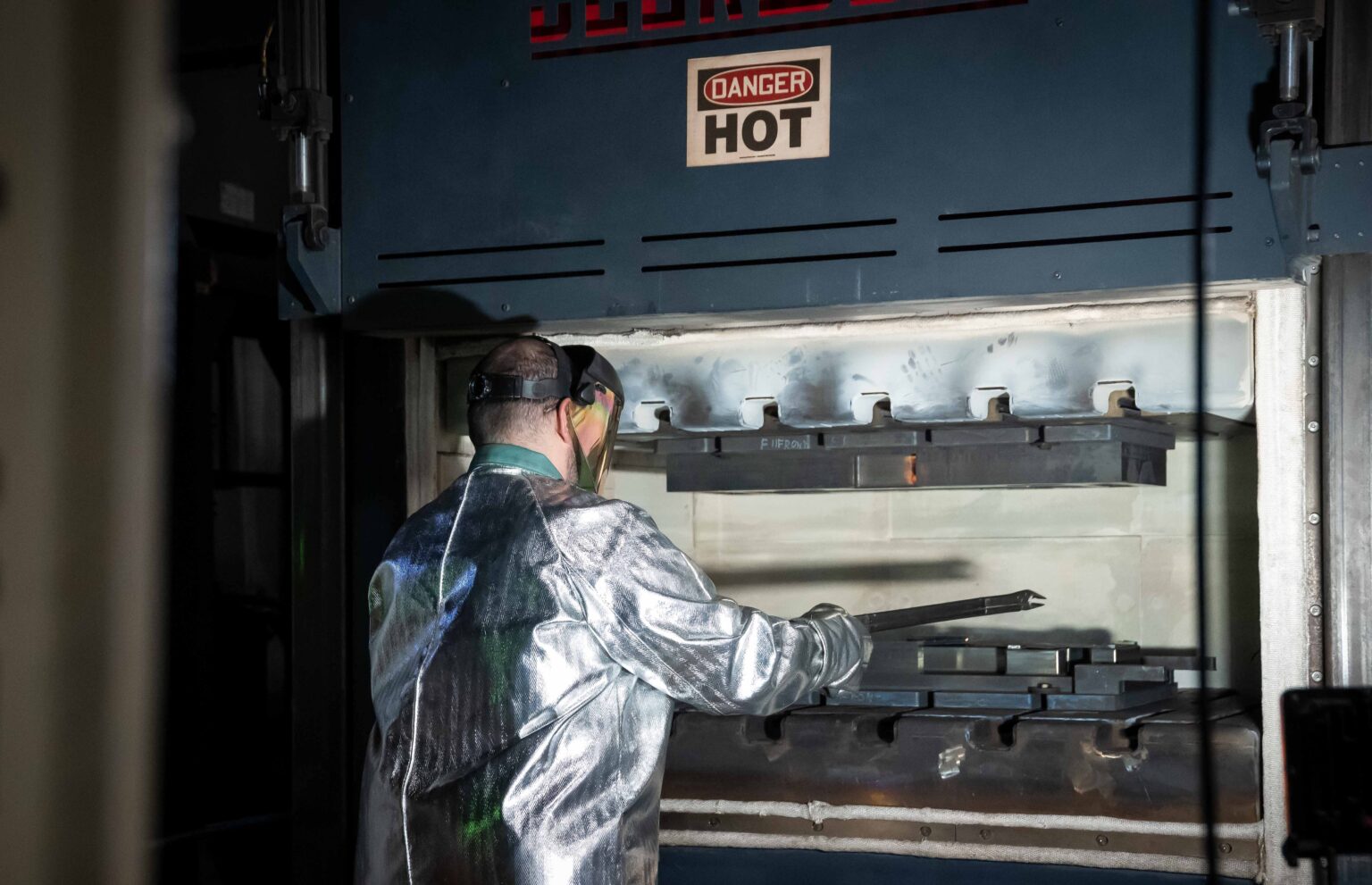August 20, 2024
In the aerospace industry, the demand for materials that can meet stringent performance requirements is ever-growing. Among the many materials used in the construction of aircraft and spacecraft, titanium stands out as a preferred choice. Its unique combination of properties makes it indispensable for the production of critical aerospace components. In this blog, we’ll explore why titanium is favored in aerospace applications and how advanced hot forming capabilities are essential in harnessing its full potential.
Unmatched value for critical needs: Connect with our team today to discuss your next aerospace manufacturing project.

One of the most compelling reasons for using titanium in aerospace manufacturing is its exceptional strength-to-weight ratio. Aircraft design demands materials that are not only strong but also lightweight to enhance fuel efficiency and overall performance. Titanium delivers on both fronts, offering a level of strength comparable to that of steel while being nearly half as heavy. This balance allows engineers to design more efficient and agile aircraft, contributing to reduced fuel consumption and lower operational costs.
Aerospace components are regularly exposed to harsh environments, including extreme temperatures, high altitudes, and corrosive elements such as saltwater. Titanium’s natural resistance to corrosion makes it an ideal choice for parts that must withstand these conditions over long periods. Unlike other metals that may require coatings or treatments to resist corrosion, titanium’s durability remains consistent, reducing the need for frequent maintenance and prolonging the lifespan of critical components
In addition to its strength and corrosion resistance, titanium can endure extreme temperatures without compromising its structural integrity. This property is especially important for parts that are exposed to high thermal stresses, such as engine components and parts near exhaust systems. Titanium’s ability to maintain its strength at temperatures as high as 600°C (1112°F) makes it invaluable in ensuring the safety and reliability of aerospace machinery.
Titanium is utilized across various aspects of aerospace manufacturing due to its advantageous properties. Here’s a quick look at just some of the many potential applications.
Aircraft Structures — Titanium is commonly used in the construction of airframes, landing gear, and other structural components that demand both strength and lightweight characteristics. Its use in these areas contributes to the overall efficiency and durability of modern aircraft.
Engine Components — The high-temperature tolerance and corrosion resistance of titanium make it ideal for use in turbine blades and other engine parts that require robust performance under extreme conditions.
While titanium’s properties are impressive, the challenge lies in shaping it into precise components that meet the aerospace industry’s exacting standards. This is where advanced hot forming capabilities come into play. In this process, titanium is shaped while at elevated temperatures; hot forming reduces the force required to form complex shapes due to the metal’s ductility at these higher temperatures. The benefits of hot forming can be summed up thusly:
Hot forming allows for the precise shaping of titanium parts, which is essential for meeting the tight tolerances required in aerospace manufacturing. Through controlled heating, titanium can be formed into complex shapes without compromising its structural integrity, ensuring that each component fits perfectly within the larger assembly.
Maintaining the integrity of titanium during the manufacturing process is crucial for ensuring the performance of the final product. Hot forming techniques enable the shaping of titanium without introducing defects or compromising its inherent properties. This ensures that the finished components retain the strength, durability, and temperature tolerance that titanium is known for.
While titanium is a valuable material, it can be costly if not processed efficiently. Hot forming helps reduce material waste by allowing for more precise shaping and minimizing the need for additional machining. This not only lowers production costs but also makes the use of titanium more economically viable for a broader range of aerospace applications.
Titanium’s unmatched strength-to-weight ratio, corrosion resistance, and high-temperature tolerance make it a strategic choice in aerospace manufacturing. However, the true potential of titanium can only be realized through advanced hot forming capabilities, which ensure that each component meets the demanding standards of the aerospace industry.
As a leader in the production of high-quality titanium components, our expertise in hot forming allows us to deliver parts that are not only durable and reliable but also optimized for the unique challenges of aerospace applications. By choosing titanium, and partnering with a manufacturer skilled in hot forming with proven certifications, aerospace companies can achieve superior performance and longevity in their critical components.
Ready to work with an aerospace parts manufacturer that meets the exacting demands of the industry with comprehensive capabilities? Connect with us today to get started.
Our team at Re:Build Cutting Dynamics wants to ensure that all your questions regarding why titanium is preferred in aerospace have been answered. With that in mind, feel free to contact us today with any questions you may have, as we look forward to assisting you.